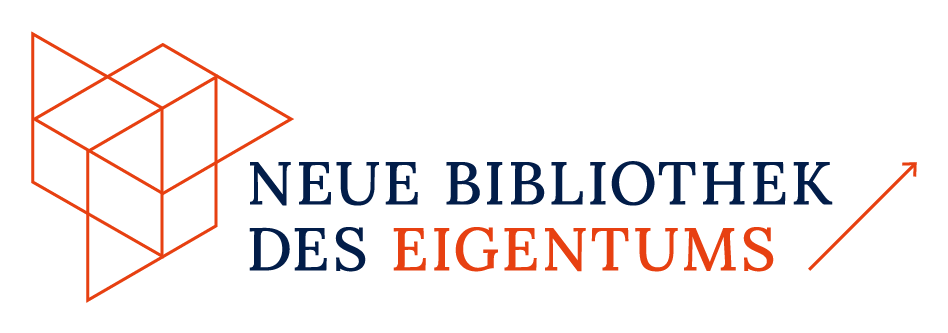The Dynamics of the Reproductive Economy: Forms of Appropriation in Global Fertility Chains

Outline
Since the 2000s, the use of commercial reproductive technologies has expanded globally. Currently, scholars speak of a third phase of the reproductive economy, characterized by a globalized intertwining of reproductive medical services, the emergence of new private entrepreneurial business models, and processes of financialization. Against this background, there are accelerated and complex dynamics of proprietary appropriation of bodily substances and generativity in reproductive medicine: practices such as in vitro fertilization, sperm, egg, and embryo transfer, and surrogacy are becoming increasingly widespread. In these procedures, reproductive bodily material from third parties-typically for payment-is used by individuals or couples with unfulfilled desires for children. An entire service industry has grown up around these services - counseling agencies, clinics, referral agencies, gamete banks, insurance companies, etc. - working together and in interconnected chains, often on a global scale.
This philosophical-sociological research project examines how forms of appropriation of human generativity intersect in the context of globalization and financialization of the reproductive economy. The project builds on recent research on "global fertility chains" and seeks to develop these findings empirically and theoretically from a property-theoretical perspective. On the one hand, we investigate privately organized forms of access to reproductive bodily substances and capacities. At the same time, we draw on the concept of "propertization" that was central to the initial phase of the project and aim to refine it through a theoretical-conceptual exploration of appropriation.
The sociological aspect of the project examines reproductive medical services that global corporations (such as Google, Deutsche Bank, etc.) have offered their employees in recent years. In particular, this includes "social egg freezing," where young women freeze their eggs for possible future fertility treatments. We hypothesize that employee reproductive health benefits facilitate the flexible management of (primarily female) generativity across life stages according to productivity demands. At the same time, these benefits support the expansion and networking of reproductive medical services and firms, contributing to the globalization of the reproductive economy. This connection will be explored comparatively through qualitative empirical case studies and theoretical-conceptual analysis.
The philosophical component focuses on the historical and conceptual philosophical analysis of the term "appropriation" in order to make it systematically useful for reconstructing processes of propertization in the third phase of reproductive economies. Heuristically, five forms of appropriation - labor, technical, legal, epistemic, and affective - are distinguished and explored in the context of global fertility chains. Drawing on current social philosophical debates on expropriation and exploitation as well as relevant social science studies on the reproductive economy, this project seeks to clarify the social theoretical potential of the concept of appropriation. In sum, this project aims to make a significant contribution to the understanding of the structural transformation of property, especially with regard to the shifting boundaries between different property arenas.
Project Activities
Publications
Scientific publications
- Graefe, S.; Herb, I.; Lettow, S. (eds.): Dimensions of Property in Reproductive Economies. Practices, Discourses, and Structures. Campus Verlag, (in preparation).
- Graefe, Stefanie (2024): "Moral economies and (de)propertization in the context of transnational reproductive economies", In: Graefe, S.; Herb, I.; Lettow, S. (eds.): Dimensions of property in transnational reproductive economies: Practices, structures and discourses. Frankfurt a. Main: Campus, (in preparation).
- Lettow, Susanne (2024): "Hegel and the Political Economy of the Family: Property, Subsistence, Labor”, In: Graduate Faculty Philosophy Journal 44-1/44-2, 171-194.
- Lettow, Susanne (2024): "Beyond the Lockean paradigm. Property and propertization in reproductive economies”, In: Graefe, S.; Herb, I.; Lettow, S. (eds.): Dimensions of property in transnational reproductive economies: Practices, structures and discourses. Frankfurt a. Main: Campus, (in preparation).
- Graefe, Stefanie (2024): "Uneindeutige Verhältnisse. Subjektive Deutungen von Eigentum am menschlichen Körper im Kontext transnationaler Reproduktion", In: AKF (ed.), Ungewollte Kinderlosigkeit. Vom Mythos der grenzenlosen Machbarkeit und den Schattenseiten der Reproduktionsmedizin. Dokumentation des Fachtages des Arbeitskreises Frauengesundheit in Medizin, Psychotherapie und Gesellschaft, 03.11.2023 in Berlin-Wannsee, Berlin.
- Herb, I.; Uhlmann, S. (2024): "Zum Widerspruch zwischen Akkumulation und der Reproduktion von Leben. Social Reproduction Theory als umfassende Analyse kapitalistischer Gesellschaften?“, In: PROKLA. Zeitschrift für Kritische Sozialwissenschaft 54(214), 11-31. DOI: https://doi.org/10.32387/prokla.v54i214.2107.
- Graefe, Stefanie (2023): “Unbedingte Freiheit? Sterbehilfe im fortgeschrittenen Neoliberalismus”, In: Simon Duncker/Almuth-Maria Schmidt (eds.), Sterben mit Anspruch? Sterbehilfe aus gesellschaftstheoretischer und historischer Sicht, Baden-Baden, 43-62. DOI: 10.5771/9783748937340-43.
- Herb, I.; Abdel-Fatah, D.; Chakraborty, D.; Edwards, G. (2023): "Nancy Fraser’s Cannibal Capitalism: An Extended Discussion“, In: Historical Materialism Bookreviews, https://www.historicalmaterialism.org/book-review/nancy-frasers-cannibal-capitalism-extended-discussion.
Media and Podcasts
- Nolte, A.; Herb, I. (2024): “‚Wish for a Baby‘ – der Markt der unendlichen Möglichkeiten“, article at Gunder Werner Institut (29.05.2024).
- Herb, Irina (2024): "Attraktiv für Investoren und Konzerne. Das Geschäft mit unerfüllten Kinderwünschen boomt.“, In: Bioskop. Zeitschrift zur Beobachtung der Biowissenschaften, No. 105, 10-11.
- Herb, I.; Uhlmann, S. (2024): "Social Reproduction Theory: Kapitalistische Widersprüche", In: Neues Deutschland (08.03.2024).
- Graefe, Stefanie (2023): Zwischen Ware und „Spende“. Die widersprüchliche Praxis der Eizelltransfers, In: Bioskop. Zeitschrift zur Beobachtung der Biowissenschaften, No. 101, 14-15.
- Herb, Irina, Wenner, Zelda (2023): “Who owns and controls the means of reproduction? Assisted fertility and pregnancy as a multi-billion dollar market”, In: blog of the Collaborative Research Centre “Structural Change of Property”. (published on 18.08.2023)
- Herb, Irina (2023): "Wenn Wall Street & Co. bei der Schwangerschaft mitreden“, article for Heinrich Böll Foundation (01.09.2023).
Lectures
- Conference contribution by Irina Herb “Who owns the Means of Reproduction? or: How we Cannot Think about Reproduction without thinking about Asset Management Firms“, Care, Commons, Reproduction: The 2024 CRMEP Graduate Conference, Kingston University (23.–24.05.2024)
- Input by Irina Herb: "Wages for Pregnancy and Fertility? The Body as Commodity in the Context of Assisted Reproductive Technologies from a Marxist-Feminist Perspective“, Conference The International Marxist Feminist Conference: Body, Work and Care in Contemporary Digital Capitalism (18.11.2023).
- Stefanie Graefe, Susanne Lettow: Input at SFB colloquium "Chains of property“ (17.11.2023)
- Lecture by Stefanie Graefe “Zwischen Gabe und Ware: Eigentum am menschlichen Körper in transnationalen Reproduktionsökonomien” at the symposium of the Women's Health Working Group in Berlin (03.11.2023)
- Stefanie Graefe, Susanne Lettow: introductory input at panel: "Eigentum am Körper? Konflikte in der Politischen Ökonomie der Generativität“, SFB annual conference "Conflicts over Property“, (4.-6.10.23)
- Input by Irina Herb “Fertilität als Ökonomie? Selbstbestimmung im Kontext von ökonomischen Strukturen“ at the Feminist Lunch: Reproduktive Selbstbestimmung für alle? – Grüne Narrative und Strategien für die Regierungskommission of the Heinrich-Böll-Stiftung. (14.06.2023)
- Lecture by Susanne Lettow “Valorisierung der menschlichen und nicht-menschlichen Natur, Lehren aus beiden Bioökonomien“, at the conference „Care und die (Re)Produktion von Natur – Feministische Perspektiven auf die Bioökonomie“, Humboldt Universität zu Berlin. (May 09/10, 2023)
- Presentation by Irina Herb “Who Should Own the Means of Reproduction? Discussing Assisted Reproductive Technologies from a Materialist Perspective” at the conference „historical materialism: State in/and Crisis. Theory and Movement in a Dangerous World“ an der Panteion University Athens. (April 20-23, 2023)
- Input by Irina Herb: "Die Wirtschaft in der Politik der Eizellspende“, as part of the professional exchange "Mögliche Szenarien der Kommissionsempfehlungen" of Gunda-Werner Institute (11.04.2023).
- Lecture and Discussion on “Ware oder Gabe? Zwischen Ausbeutung und reproduktiver Freiheit” with Stefanie Graefe, online lecture series by Gen-ethischen Netzwerks e.V. in cooperation with Netzwerk fem*ini gegen reproduktive Ausbeutung. (Oct. 13, 2022)
- Sophie Jossi-Silverstein: comment on panel "Colonial Appropriation“ about the lectures of Allan Greer and Brenna Bhandar, SFB annual conference "Contested Concepts of Property in Past & Present", 4.-5.10.2022.
- Presentation by Sophie Jossi-Silverstein: “Rethinking the fundamentals of care: challenges to the concept of selfownership in reproductive bioeconomies” at the 11. European Feminist Research Conference Social Change in a Feminist Perspective, Universität Mailand (June 15-18, 2022)
- Sophie Jossi-Silverstein: "Proper(ty) Subjects: Reproductive Bioeconomies and a Critique of Proprietary Subjectivity.”, SFB colloquium 6.5.2022
- Lecture by Stefanie Graefe & Susanne Lettow (Jena/Berlin): Eigentum am menschlichen Körper im Kontext transnationaler Reproduktionsökonomien, Lecture as part of the Ad-hoc group on „Zur Eigentumsvergessenheit der Soziologie – konzeptuelle und empirische Perspektiven“, Kongress Deutsche Gesellschaft für Soziologie. (Sept. 18, 2020)
Events
- Online lecture series “Bodies, power and property in transnational reproductive economies” with Amrita Pande, Laura Mamo, Daisy Deomampo, Elizabeth Lanphier and Kean Birch, organized by Stefanie Graefe, Irina Herb, Susanne Lettow in the context of the research project. (November 2023 - February 2024)
- Panel: "Eigentum am Körper? Konflikte in der Politischen Ökonomie der Generativität“, SFB annual conference "Conflicts over Property“ with Caroline Arni, Stefanie Graefe, Susanne Lettow, Susanne Schultz, 4.-6.10.23
- Workshop “Dimensions of Property in Reproductive Economies: Practices, Interpretations and Discourses” with a keynote lecture by Janice Richardson (Monash University): Subordination and Surrogacy: Feminist Perspectives on Locke’s Conception of “Property in the Person”. (Feb. 16/17, 2023)
- Workshop in cooperation with JRT 3 (Maria Backhouse): “Propertisierung – Kommodifizierung – Kommerzialisierung. Kritische Perspektiven auf Reproduktionsökonomien und Bioökonomie”, with a keynote lecture by Sarah Franklin (Cambridge); and talks/inputs by Miriam Boyer (Berlin), Sarah Hackfort (Berlin), Veit Braun (Frankfurt a.M.), Susanne Schultz (Graz), Kathrin Braun (Stuttgart), and Anna Saave (SFB). (Oct.14/15, 2021)



